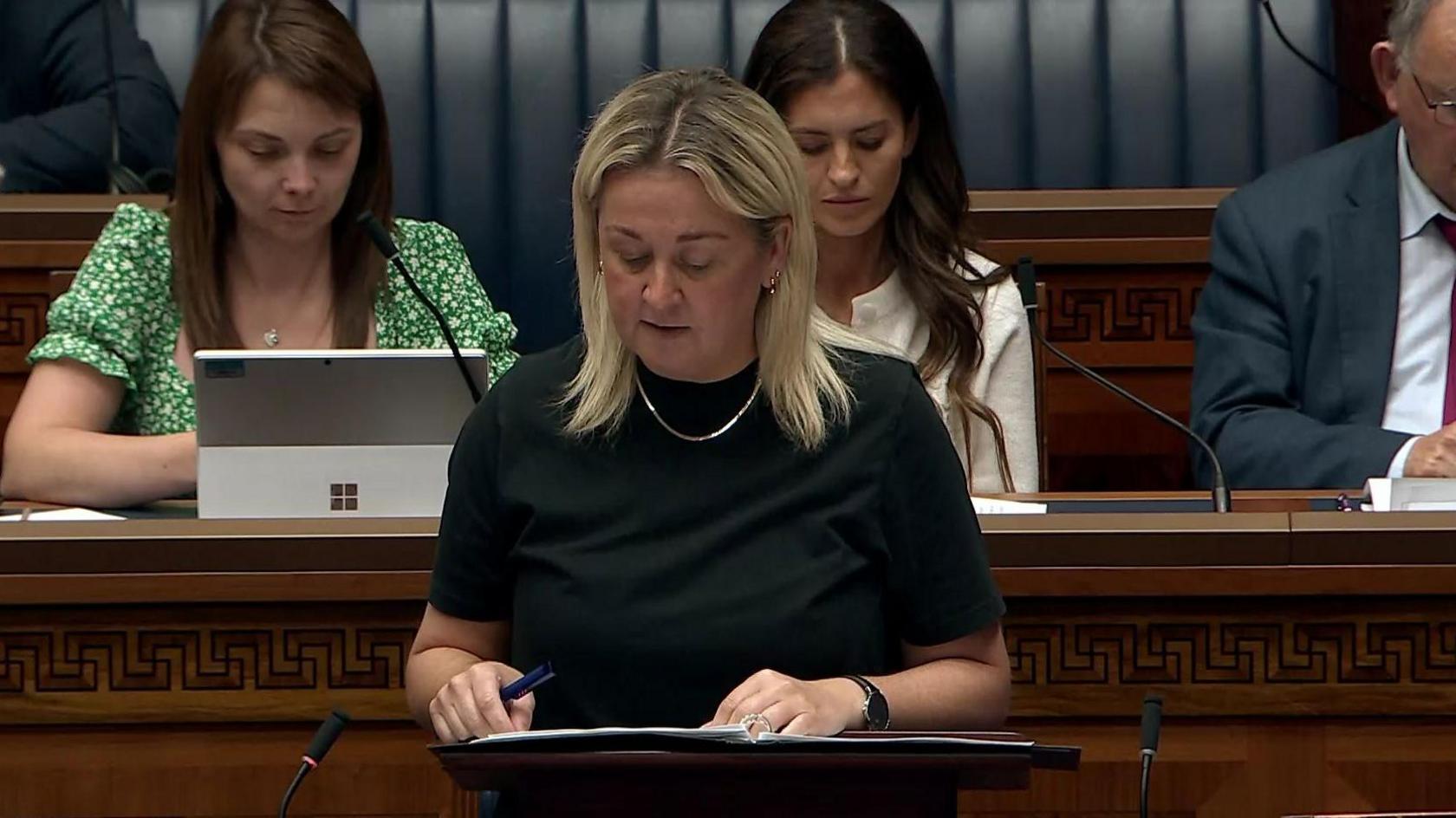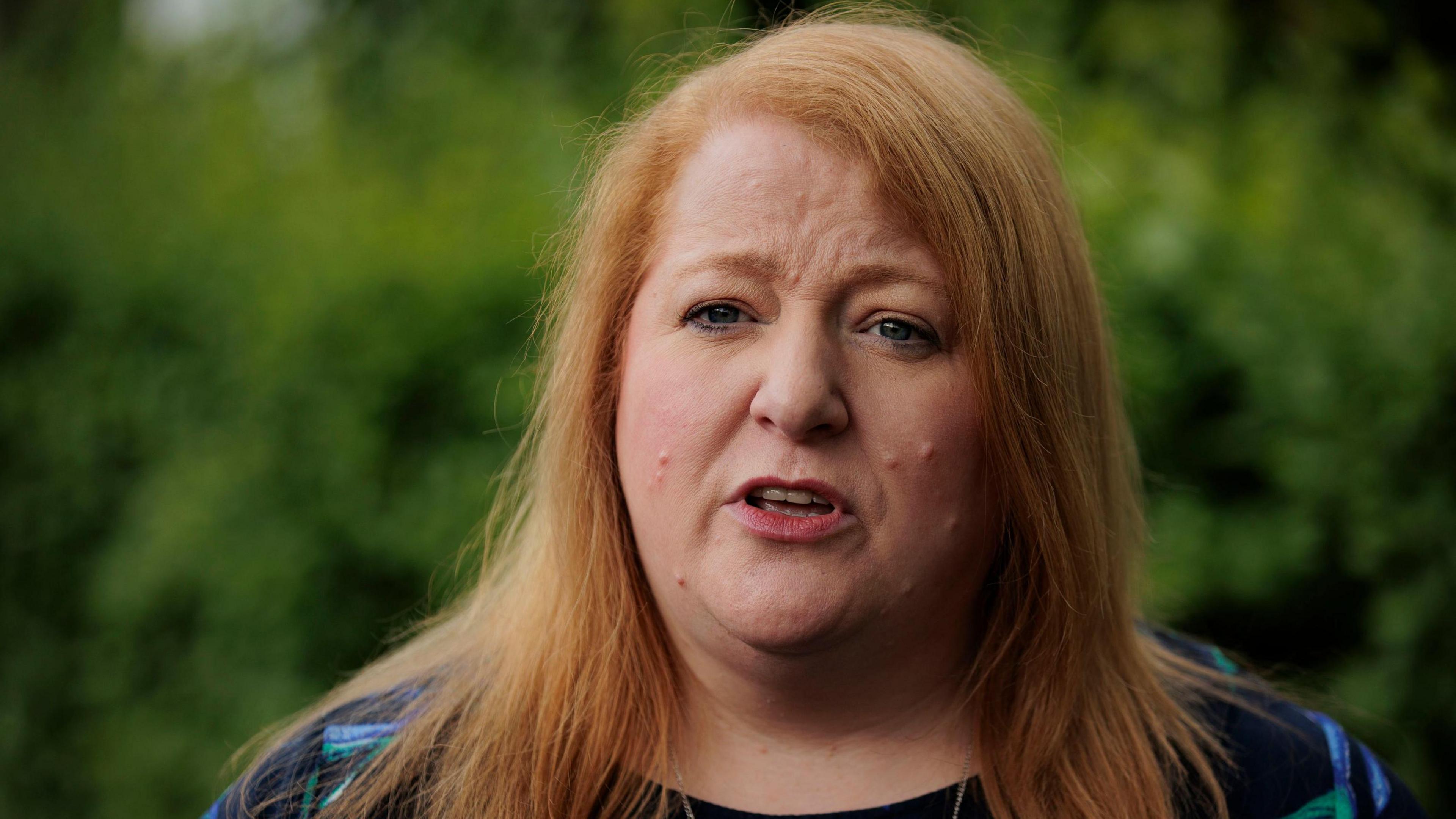MLAs approve new body to set their salaries

- Published
A law to set up a new panel for setting the salaries of Northern Ireland Assembly members (MLAs) has passed its final stage at Stormont.
The bill will create an independent remuneration board to determine the salaries and pensions of MLAs.
It was passed with support from the main Stormont parties.
But some MLAs criticised the bill, arguing it would lead to assembly members receiving significant pay rises.
How much are MLAs paid?
MLAs earn £53,000 a year, which is less than their counterparts in the UK's other devolved legislatures in Scotland and Wales.
Members of the Scottish Parliament receive £74,507 while members of the Welsh Parliament earn £76,380.
At Westminster, MPs earn £93,904 a year while members of the Dáil (lower house of the Irish parliament) earn €113,679 (£94,537).
The wages and expenses of MLAs were previously set by the Independent Financial Review Panel (IFRP).
But the terms of its three members ended in 2016 and they were never replaced.
MLAs at the time took issue with some of the rules the panel imposed, including limits on salaries for constituency office staff and other matters such as office signage.
The Assembly Members (Remuneration Board) Bill, external will establish a new panel with the sole remit of setting MLAs' pay and pension entitlements.
The bill was backed by the Assembly Commission, a body which handles the running of Parliament Buildings and involves representatives of Stormont's main parties.
Like the IFRP, the new panel is expected to take into account other jurisdictions when setting MLA salaries.
TUV and PBP criticise bill
The bill was passed on Monday with just two MLAs voicing their opposition in the assembly chamber.
Traditional Unionist Voice MLA Timothy Gaston said the bill had been marked by "secrecy, self-interest and indeed plenty of spin".
He said there was no "proper public consultation" on the bill.
"In reality, it is nothing more than a vehicle to enable MLAs to award themselves a substantial pay rise," he said.
"This isn't about reform. It's a loaded dice. A guaranteed upward trajectory."
People Before Profit MLA Gerry Carroll described the bill as "tone deaf".
He raised concerns over former MLAs being able to sit on the "so-called independent panel".

People Before Profit MLA Gerry Carroll opposed the new panel
The assembly member also criticised how a newly established board will not set rules on MLA expenses.
"Executive parties have proven time and time again they can't be trusted to oversee their own expenses," he said.
"Members can continue to deny that this bill will entail a massive pay increase. I say you're taking the public for absolute fools."
Sinn Féin MLA Sinéad Ennis, the party's representative on the Assembly Commission, said there was "no good time to deal with these issues".
But she said there had been "misunderstandings and inaccuracies" over the bill which had been "regurgitated" during the debate.
She said the commission has been focused "on the process of determining members' salaries, not the outcome".

Sinn Féin MLA Sinéad Ennis defended the process
Ennis said the board would have "independence in deciding what factors it wants to consider before determining its view on the appropriate level of salaries and pensions".
Andy Allen, an Ulster Unionist Party MLA and member of the Assembly Commission, said the legislation was a "technical" bill.
"In passing this bill, the assembly is fulfilling its responsibility to regularise the position and provide legal clarity," he said.
He said the "core purpose of this bill is to ensure that salaries of members are determined independently".
"It is difficult to see how anyone could reasonably object to that."
Related topics
- Published9 June

- Published5 February
